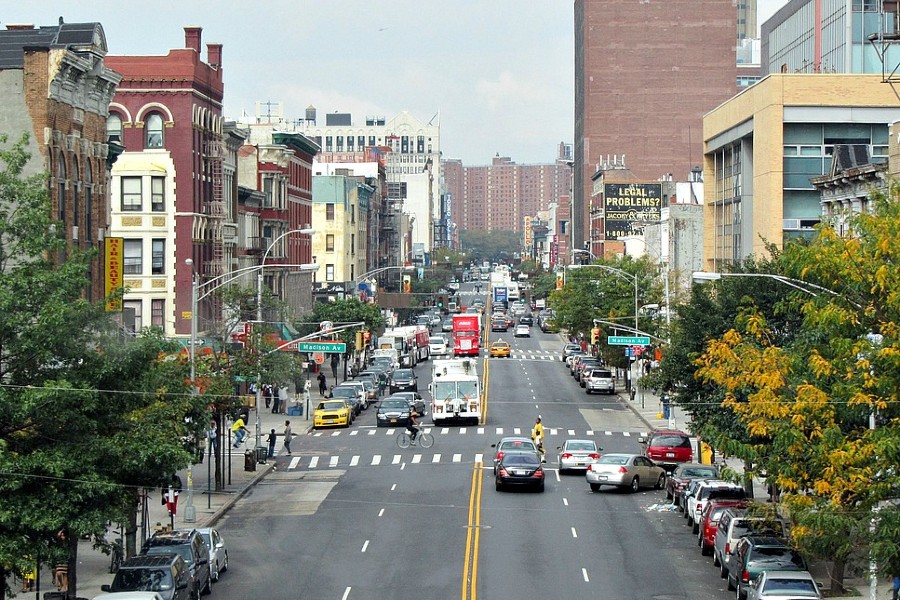Decent Wages, Safe Jobs through Solidarity Center NED Funding – Solidarity Center

Report on the Solidarity Center’s Contribution to Sustainable Development Goals through NED Funding
Funding from the National Endowment for Democracy (NED) has enabled the Solidarity Center to implement global initiatives that directly support the United Nations Sustainable Development Goals (SDGs). By empowering workers to form unions and associations, the programs advance democratic practices and contribute to the creation of just, inclusive, and sustainable societies. These efforts focus on securing decent work, fair wages, and safe working conditions, which are foundational to several SDGs.
Global Initiatives Advancing Decent Work and Strong Institutions (SDG 8 & SDG 16)
Since its inception as a NED partner in 1983, the Solidarity Center has executed programs in numerous countries, yielding significant outcomes that align with the 2030 Agenda for Sustainable Development. The core strategy involves strengthening worker capacity to engage in collective bargaining and advocate for their rights, which fosters both economic growth and the development of strong, accountable institutions.
Key Programmatic Achievements:
- Nigeria: Advocacy efforts led to a government allocation of nearly $70 million to improve national health infrastructure. This initiative directly supports SDG 3 (Good Health and Well-being) by increasing public health spending and improving wages and conditions for healthcare workers.
- Dominican Republic: Over 1,000 sugarcane workers were empowered to secure decent wages and safe working conditions, a direct contribution to SDG 8 (Decent Work and Economic Growth) and SDG 1 (No Poverty).
- Serbia: Training and support improved health and safety standards at over 1,000 worksites. This collaboration between workers, the government, and employers advances SDG 3 and SDG 8.
- Thailand: Assistance provided to garment and electronics workers in supply chain factories resulted in the recovery of unpaid wages. A notable success was the retrieval of $8.3 million in wages and severance for 1,250 workers at Brilliant Alliance Thailand, contributing to SDG 8 and SDG 1 (No Poverty).
Country-Level Case Studies on SDG Implementation
The Philippines: Advancing Decent Work and Access to Justice (SDG 8 & SDG 16)
In the Philippines, Solidarity Center initiatives have focused on combating wage theft and strengthening worker representation, particularly in the gig economy. These actions promote SDG 8 by ensuring fair compensation and SDG 16 (Peace, Justice and Strong Institutions) by enabling access to legal recourse.
- A legal ruling granted 7.2 million PHP ($128,000) in lost wages to digital platform drivers for FoodPanda.
- The formation of the RIDERS-SENTRO union provided a formal institution for drivers to advocate for their rights and engage with local government, reinforcing SDG 16.
Central Asia: Youth Empowerment for Anti-Corruption and Labor Rights (SDG 4, SDG 8 & SDG 16)
The Solidarity Center’s Regional Youth School in Central Asia educates young workers on their legal rights and anti-corruption measures, aligning with SDG 4 (Quality Education), SDG 8, and SDG 16. Workshops for young leaders from Kazakhstan, Kyrgyzstan, and Uzbekistan have equipped a new generation of advocates with tools to promote transparent and fair workplace practices.
Morocco: Securing Dignity and Decent Work in the Textile Sector (SDG 3, SDG 5 & SDG 8)
Nearly 2,000 workers across seven textile factories in Casablanca successfully formed unions, leading to significant improvements in their working conditions. This achievement supports multiple SDGs:
- SDG 8: Workers secured fair wages, regulated work hours, and addressed unsafe working conditions.
- SDG 3: The new union agreements include provisions for healthcare protection.
- SDG 5 (Gender Equality): Empowering workers in the female-dominated textile industry contributes to economic equality for women.
The establishment of unions provided a mechanism for workers to secure legal rights and dignity, demonstrating a tangible outcome for SDG 16 through the strengthening of civil society institutions.
The Maldives: Ending Unpaid Labor in the Healthcare Sector (SDG 3 & SDG 8)
A successful advocacy campaign, conducted in partnership with the Maldives Health Professionals Union (MHPU), resulted in a legislative amendment guaranteeing overtime pay for 9,000 government healthcare workers. This victory addresses critical SDG targets:
- It rectifies a violation of SDG 8 by ending the practice of unpaid forced labor and ensuring fair compensation.
- It supports SDG 3 by improving the working conditions and morale of essential health professionals, which is vital for patient care and public health system resilience.
The campaign highlights the role of strong worker organizations in achieving legislative change, thereby contributing to the institutional framework required by SDG 16.
Analysis of Sustainable Development Goals (SDGs) in the Article
1. Which SDGs are addressed or connected to the issues highlighted in the article?
-
SDG 3: Good Health and Well-being
- The article highlights efforts to improve healthcare systems and conditions for health workers. In Nigeria, advocacy led to the government providing nearly $70 million to bolster health infrastructure and boost health care workers’ wages. In the Maldives, a successful campaign ensured 9,000 nurses receive overtime pay, which is linked to preventing burnout and maintaining quality patient care. The article also mentions improving health and safety at over 1,000 worksites in Serbia and securing health care protection for textile workers in Morocco.
-
SDG 8: Decent Work and Economic Growth
- This is the central theme of the article. It details numerous initiatives aimed at securing “decent wages and safe working conditions.” Specific examples include sugarcane workers in the Dominican Republic securing decent wages, garment workers in Thailand winning back $8.3 million in unpaid wages, digital platform drivers in the Philippines being granted $128,000 in lost wages, and textile workers in Morocco fighting for fair pay and against unpaid overtime. The core mission of the Solidarity Center to protect labor rights and promote safe working environments directly aligns with this goal.
-
SDG 10: Reduced Inequalities
- The article describes how empowering marginalized workers helps create “more just, inclusive and democratic societies.” By enabling workers in low-wage sectors like garment manufacturing (Thailand, Morocco), agriculture (Dominican Republic), and the gig economy (Philippines) to unionize and demand fair compensation, these efforts directly address income inequality and give a voice to vulnerable populations.
-
SDG 16: Peace, Justice and Strong Institutions
- The article emphasizes the importance of democratic practices, such as the freedom to “freely speak out, form unions and associations.” It showcases how workers are building strong institutions (unions) to advocate for their rights, connect with governments, and “shape the policies and laws.” The training of young leaders in Central Asia to identify and “challenge corruption” and the successful legislative amendment campaign in the Maldives are direct contributions to building just and accountable institutions.
2. What specific targets under those SDGs can be identified based on the article’s content?
-
Under SDG 3 (Good Health and Well-being):
- Target 3.8: Achieve universal health coverage. This is addressed by the effort in Nigeria that resulted in “$70 million to bolster the country’s health infrastructure.”
- Target 3.c: Substantially increase health financing and the recruitment, development, training and retention of the health workforce. This is relevant to the work in Nigeria “boosting health care workers’ wages and working conditions” and in the Maldives, where ensuring overtime pay for 9,000 nurses helps in their retention.
-
Under SDG 8 (Decent Work and Economic Growth):
- Target 8.5: Achieve full and productive employment and decent work for all… and equal pay for work of equal value. This is demonstrated by the campaigns for “fair pay” in the Philippines, “decent wages” in the Dominican Republic and Morocco, and the recovery of “$8.3 million in wages and severance payments” in Thailand.
- Target 8.7: Take immediate and effective measures to eradicate forced labour. The campaign in the Maldives to end unpaid overtime for nurses, described as a fight against “unpaid forced labor,” directly addresses this target.
- Target 8.8: Protect labour rights and promote safe and secure working environments for all workers. This is a core theme, exemplified by improving “health and safety at more than 1,000 worksites in Serbia,” securing “safety at work” in the Dominican Republic, and protecting the fundamental right to “form unions” across all mentioned countries.
-
Under SDG 10 (Reduced Inequalities):
- Target 10.4: Adopt policies, especially fiscal, wage and social protection policies, and progressively achieve greater equality. The successful advocacy for a “legislative amendment” for overtime pay in the Maldives and the legal ruling for lost wages in the Philippines are examples of using policy and legal frameworks to achieve greater equality.
-
Under SDG 16 (Peace, Justice and Strong Institutions):
- Target 16.5: Substantially reduce corruption and bribery in all their forms. This is directly addressed by the workshops in Central Asia that train young people to “challenge corruption” and identify corrupt workplace practices.
- Target 16.7: Ensure responsive, inclusive, participatory and representative decision-making at all levels. The article shows workers forming unions to “make their voices heard” by local governments (Philippines) and to “shape the policies and laws that truly make change for everyone” (Maldives).
- Target 16.10: Ensure public access to information and protect fundamental freedoms. The entire premise of the Solidarity Center’s work, enabling workers’ rights to “freely speak out, form unions and associations,” supports this target.
3. Are there any indicators mentioned or implied in the article that can be used to measure progress towards the identified targets?
-
Monetary Values: The article provides specific financial figures that serve as direct indicators of progress.
- “$70 million” in new government funding for health infrastructure in Nigeria.
- “$8.3 million in wages and severance payments” won back by 1,250 workers in Thailand.
- “7.2 million PHP ($128,000) in lost wages” granted to drivers in the Philippines.
-
Number of People/Entities Affected: The article quantifies the reach and impact of the initiatives.
- “more than 1,000 workers” organized in the Dominican Republic.
- “Improving health and safety at more than 1,000 worksites” in Serbia.
- “nearly 2,000 workers” at seven textile factories in Morocco formed unions.
- “9,000 nurses” in the Maldives who will now receive overtime pay.
- “18 young leaders” from three countries trained in Central Asia.
-
Policy and Legislative Changes: Progress is measured by concrete changes in laws and policies.
- A “legislative amendment” was approved in the Maldives to ensure overtime pay for government healthcare workers.
- A legal “ruling” was granted in the Philippines for lost wages.
-
Qualitative Statements: The article includes quotes from workers that serve as qualitative indicators of empowerment and improved well-being.
- “We realize our power, our rights.” (Philippines)
- “We achieved dignity and the freedom to associate, which was previously denied.” (Morocco)
4. Table of SDGs, Targets, and Indicators
| SDGs | Targets | Indicators Identified in the Article |
|---|---|---|
| SDG 3: Good Health and Well-being |
3.8: Achieve universal health coverage.
3.c: Increase health financing and retention of the health workforce. |
– Amount of new government funding for health ($70 million in Nigeria). – Number of health workers benefiting from improved conditions (9,000 nurses in the Maldives). |
| SDG 8: Decent Work and Economic Growth |
8.5: Achieve decent work and equal pay for work of equal value.
8.7: Eradicate forced labour. 8.8: Protect labour rights and promote safe and secure working environments. |
– Amount of unpaid wages and severance recovered ($8.3 million in Thailand; $128,000 in the Philippines). – Elimination of unpaid overtime (“unpaid forced labor”) for 9,000 nurses. – Number of workers unionized to protect rights (1,000+ in Dominican Republic; 1,250 in Thailand; 2,000 in Morocco). – Number of worksites with improved safety (1,000+ in Serbia). |
| SDG 10: Reduced Inequalities | 10.4: Adopt policies, especially wage and social protection policies, to achieve greater equality. |
– Implementation of wage policies through legal rulings (Philippines). – Creation of new social protection policies through legislative amendments (Maldives). |
| SDG 16: Peace, Justice and Strong Institutions |
16.5: Substantially reduce corruption.
16.7: Ensure responsive, inclusive, and participatory decision-making. 16.10: Protect fundamental freedoms. |
– Number of leaders trained to challenge corruption (18 in Central Asia). – Formation of unions as institutions for participatory decision-making. – Qualitative statements on achieving dignity and freedom of association. – Successful campaigns to pass legislation, demonstrating influence on policy. |
Source: solidaritycenter.org

What is Your Reaction?
 Like
0
Like
0
 Dislike
0
Dislike
0
 Love
0
Love
0
 Funny
0
Funny
0
 Angry
0
Angry
0
 Sad
0
Sad
0
 Wow
0
Wow
0












































































